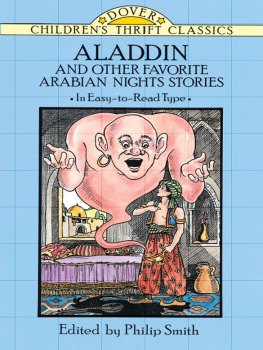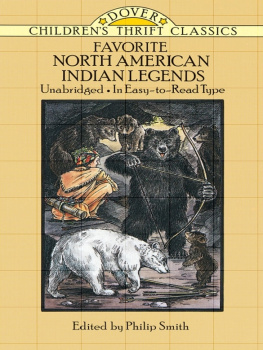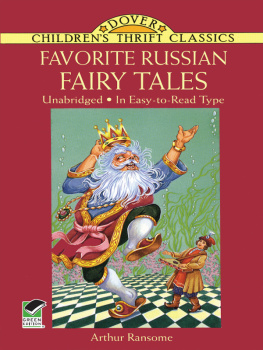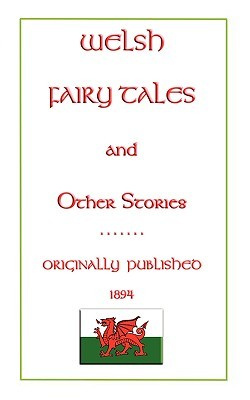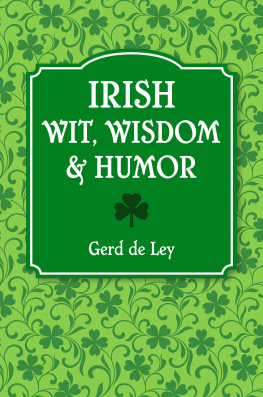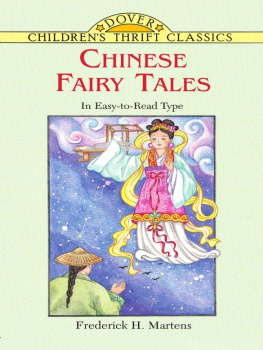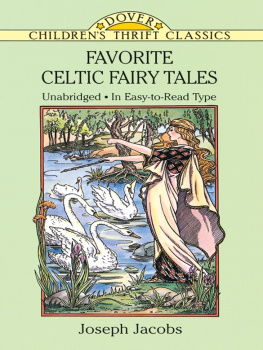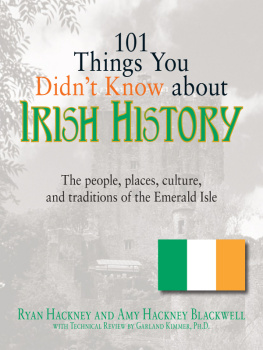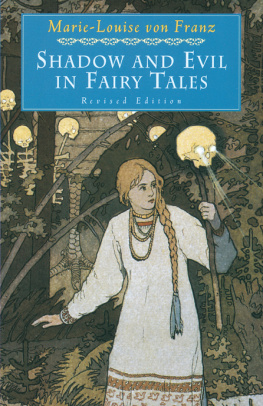The Bee, the Harp, the Mouse, and the Bum-Clock
O NCE THERE WAS a widow, and she had one son, called Jack. Jack and his mother owned just three cows. They lived well and happy for a long time; but at last hard times came down on them, and the crops failed, and poverty looked in at the door, and things got so sore against the poor widow that for want of money and for want of necessities she had to make up her mind to sell one of the cows. Jack, she said one night, go over in the morning to the fair to sell the branny [speckled brown] cow.
Well and good: in the morning my brave Jack was up early, and took a stick in his fist and turned out the cow, and off to the fair he went with her; and when Jack came into the fair, he saw a great crowd gathered in a ring in the street. He went into the crowd to see what they were looking at, and there in the middle of them he saw a man with a wee, wee harp, a mouse, and a bum-clock [cockroach], and a bee to play the harp. And when the man put them down on the ground and whistled, the bee began to play the harp, and the mouse and the bum-clock stood up on their hind legs and got hold of each other and began to waltz. And as soon as the harp began to play and the mouse and the bum-clock to dance, there wasnt a man or woman, or a thing in the fair, that didnt begin to dance also; and the pots and pans, and the wheels and reels jumped and jigged, all over the town, and Jack himself and the branny cow were as bad as the next.
There was never a town in such a state before or since, and after a while the man picked up the bee, the harp, and the mouse, and the bum-clock and put them into his pocket, and the men and women, Jack and the cow, the pots and pans, wheels and reels, that had hopped and jigged, now stopped, and every one began to laugh as if to break its heart. Then the man turned to Jack. Jack, says he, how would you like to be master of all these animals?
Why, says Jack, I should like it fine.
Well, then, says the man, how will you and me make a bargain about them?
I have no money, says Jack.
The bee began to play the harp, and the mouse and the bum-clock stood up on their hind legs and began to waltz.
But you have a fine cow, says the man. I will give you the bee and the harp for it.
O, but, Jack says, says he, my poor mother at home is very sad and sorrowful entirely, and I have this cow to sell and lift her heart again.
And better than this she cannot get, says the man. For when she sees the bee play the harp, she will laugh if she never laughed in her life before.
Well, says Jack, says he, that will be grand.
He made the bargain. The man took the cow; and Jack started home with the bee and the harp in his pocket, and when he came home, his mother welcomed him back.
And Jack, says she, I see you have sold the cow.
I have done that, says Jack.
Did you do well? says the mother.
I did well, and very well, says Jack.
How much did you get for her? says the mother.
O, says he, it was not for money at all I sold her, but for something far better.
O, Jack! Jack! says she, what have you done?
Just wait until you see, mother, says he, and you will soon say I have done well.
Out of his pocket he takes the bee and the harp and sets them in the middle of the floor, and whistles to them, and as soon as he did this the bee began to play the harp, and the mother she looked at them and let a big, great laugh out of her, and she and Jack began to dance, the pots and pans, the wheels and reels began to jig and dance over the floor, and the house itself hopped about also.
When Jack picked up the bee and the harp again the dancing all stopped, and the mother laughed for a long time. But when she came to herself, she got very angry entirely with Jack, and she told him he was a silly, foolish fellow, that there was neither food nor money in the house, and now he had lost one of her good cows also. We must do something to live, says she. Over to the fair you must go to-morrow morning, and take the black cow with you and sell her.
And off in the morning at an early hour brave Jack started, and never halted until he was in the fair. When he came into the fair, he saw a big crowd gathered in a ring in the street. Said Jack to himself, I wonder what are they looking at.
Into the crowd he pushed, and saw the wee man this day again with a mouse and a bum-clock, and he put them down in the street and whistled. The mouse and the bum-clock stood up on their hind legs and got hold of each other and began to dance there and jig, and as they did there was not a man or woman in the street who didnt begin to jig also, and Jack and the black cow, and the wheels and the reels, and the pots and pans, all of them were jigging and dancing all over the town, and the houses themselves were jumping and hopping about, and such a place Jack or any one else never saw before.
When the man lifted the mouse and the bum-clock into his pocket, they all stopped dancing and settled down, and everybody laughed right hearty. The man turned to Jack. Jack, said he, I am glad to see you; how would you like to have these animals?
I should like well to have them, says Jack, says he, only I cannot.
Why cannot you? says the man.
O, says Jack, says he, I have no money, and my poor mother is very down-hearted. She sent me to the fair to sell this cow and bring some money to lift her heart.
O, says the man, says he, if you want to lift your mothers heart I will sell you the mouse, and when you set the bee to play the harp and the mouse to dance to it, your mother will laugh if she never laughed in her life before.
But I have no money, says Jack, says he, to buy your mouse.
I dont mind, says the man, says he, I will take your cow for it.
Poor Jack was so taken with the mouse and had his mind so set on it, that he thought it was a grand bargain entirely, and he gave the man his cow, and took the mouse and started off for home, and when he got home his mother welcomed him.
Jack, says she, I see you have sold the cow.
I did that, says Jack.
Did you sell her well? says she.
Very well indeed, says Jack, says he.
How much did you get for her?
I didnt get money, says he, but I got value.
O, Jack! Jack! says she, what do you mean?
I will soon show you that, mother, says he, taking the mouse out of his pocket and the harp and the bee and setting all on the floor; and when he began to whistle the bee began to play, and the mouse got up on its hind legs and began to dance and jig, and the mother gave such a hearty laugh as she never laughed in her life before. To dancing and jigging herself and Jack fell, and the pots and pans and the wheels and reels began to dance and jig over the floor, and the house jigged also. And when they were tired of this, Jack lifted the harp and the mouse and the bee and put them in his pocket, and his mother she laughed for a long time.
But when she got over that she got very down-hearted and very angry entirely with Jack. And O, Jack, she says, you are a stupid, good-for-nothing fellow. We have neither money nor meat in the house, and here you have lost two of my good cows, and I have only one left now. To-morrow morning, she says, you must be up early and take this cow to the fair and sell her. See to get something to lift my heart up.
I will do that, says Jack, says he. So he went to his bed, and early in the morning he was up and turned out the spotty cow and went to the fair.


